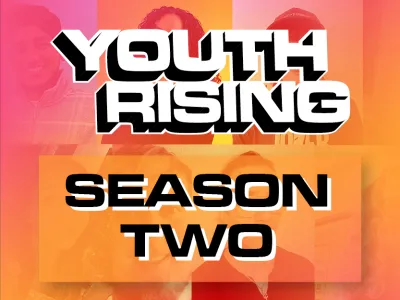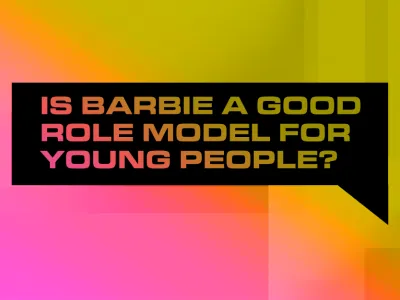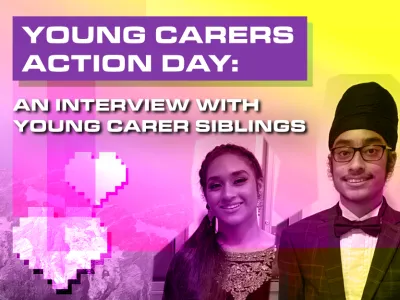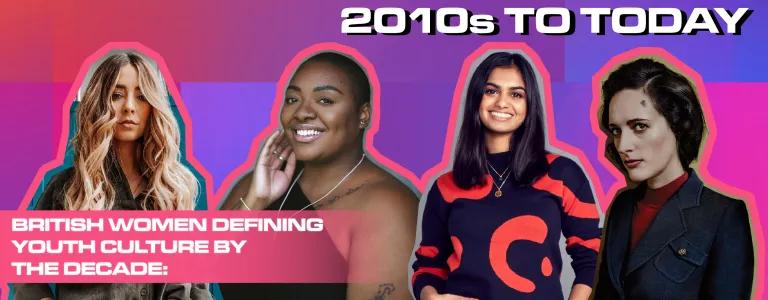
British Women Defining Youth Culture By The Decade: 2010s To Today
Include this article in your Skills Builder Journal. It could help you develop...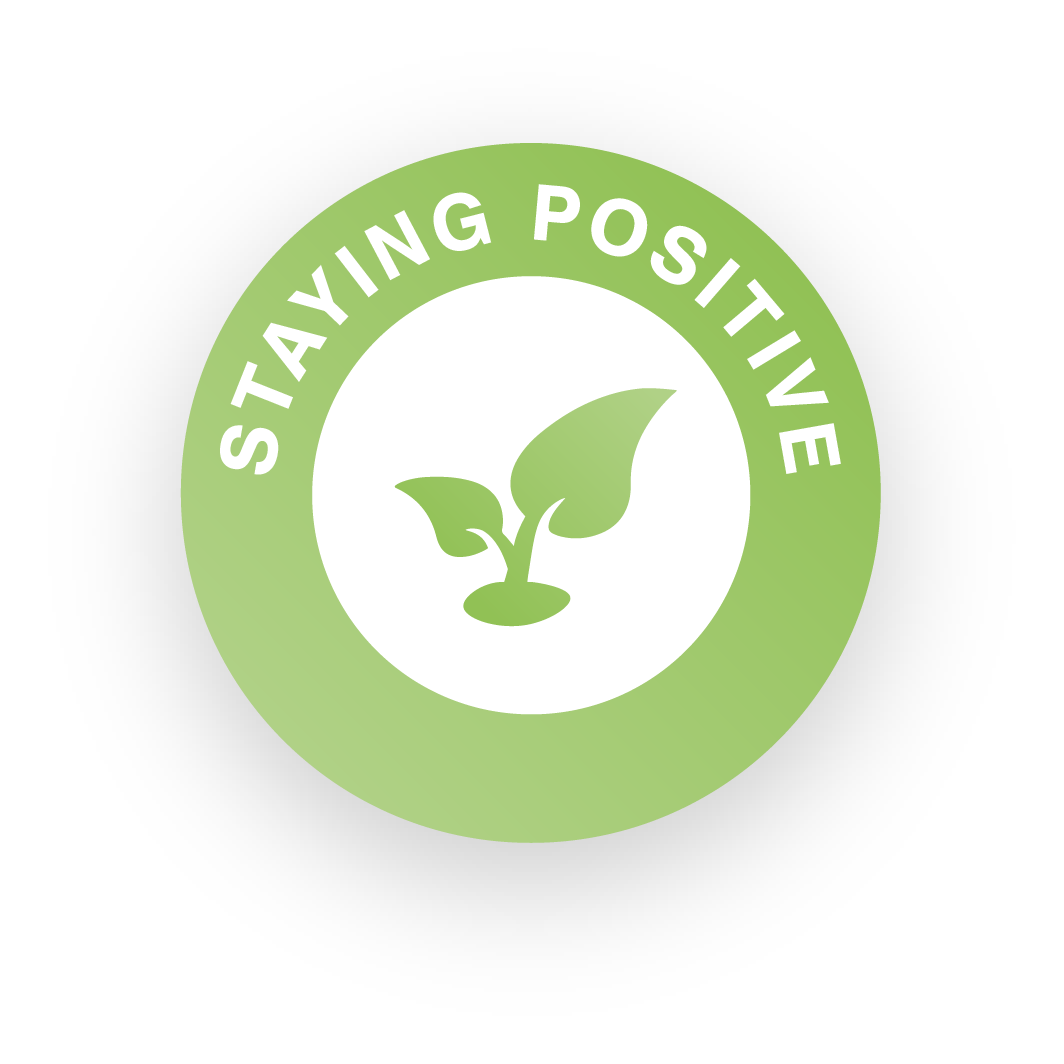


We’re back with the final part of our series looking at British women who helped shape, define, and change youth culture as we know it. Because let’s face it, youth culture is - and always has been - massively influential. From fashion to activism, the music industry to advertising, many people look to the young people of the generation to make decisions that affect, or create, change.
This time, we’re taking a look at the 2010s…
In our previous chapter, we saw that the internet started to change things for youth culture in the 2000s, and by the next decade, the internet and social media had fully taken over. Smartphones and apps became the way that young people digest news, make friends, and even start careers. And it only gets bigger with time.
While YouTube started in 2005, it was in the 2010s that the platform was shaken up and a new group of people came into the ether - the Vloggers. People who used YouTube as a stage, where they talked about their lives, their relationships, their shopping, their beauty hauls, their creativity, and so much more. And no one did it quite like Zoella, aka, Zoe Sugg. Zoe first set up her YouTube channel in 2009, but it wasn’t until a few years later that she started racking up an audience - and quickly. By 2013 she had a million subscribers and was uploading videos weekly. From there, her audience, brand, and business just kept growing. From novels to makeup to bath and beauty products, Zoe quickly established herself as more than just a Vlogger, she was an entrepreneur. And young people everywhere loved her for what she did. Her videos were candid, relatable and funny most of the time, but she also used her platform to speak openly about having anxiety and panic disorder. By 2016, her YouTube channel had ten million subscribers and Zoe was one of the most influential and popular accounts on site globally. And one year later? She’d been named the number one most influential influencer, according to research by Fizzology - who rank influencers based on their social reach and average engagement across social platforms, as well as their cultural, political and social influence. And of course, Zoe also took to Instagram and quickly became an influencer on there too, with 9.3million followers currently.

Speaking of Instagram, this became the social media platform, pretty much as soon as it was created in late 2010. From its humble Valencia filtered beginnings, to what it is now - a space where people can express themselves, speak up for what they believe in, and even earn money from - Instagram has ruled the last decade, and has given way to a new type of person…the influencer: someone who has specialised knowledge, authority or insight into a specific subject. It could be fashion, beauty, activism, sustainability, gender, hair, sports, modelling, food, art, or even just themselves. The influencer has taken over people’s screens and lives, and it can happen slowly over time, or just-like-that-overnight.
Nyome Nicholas-Williams is an influencer who has seen both sides of this and is someone inspiring a whole new generation to love themselves, no matter what. A photographer by trade, Nyome joined Insta in 2015 as @curvynyome. Her following started small but slowly gained traction over the years. In 2016, Nyome started modelling after her good friends kept telling her she was wasting her good looks by not sharing them with the world(!) But it wasn’t easy, and she was met with “a dispiriting lack of plus-size models of colour”. So, she decided to carve a space for herself, and has since become an advocate of body celebration - particularly for plus size people. And the space she carved quickly became a space that others needed, craved, and joined. Nyome shot into the Insta-sphere and has since modelled for Adidas, Boots and Dove, scored a Glamour cover and grown a following of more than 80,000 people. But it hasn’t all been easy. In 2020, Nyome posted photos on Insta taken by photographer Alex Cameron, and found that they kept getting flagged for nudity and removed by Instagram. This immediately caused controversy across the social platform and opened up big and important questions about why it happened to her. Many people asked why thin, white models were able to post semi-nude photographs, but Nyome, as a fat, Black model was getting flagged. Nyome’s determination for equality and justice resulted in a campaign rallying people to share the photos that kept getting flagged, with the hashtag #iwanttoseenyome. This shot Nyome into the spotlight even more (there’s that overnight influencer moment!) and eventually got the attention of Adam Mosseri - Instagram’s CEO - who emailed her to apologise, and posted on the Insta account that this was a failing on Insta’s policies and committed the company to alter them so it wouldn’t happen again. A small win in the grand scheme of things, but it has allowed Nyome to become a big voice in the fight for justice and body acceptance. She has inspired thousands of people all over the world to lean into who they are and celebrate it at every step of the way - even when people (literally) try to take you down. In an open letter on Harpers Bazaar she said, “I have grown to love myself even more through my work as a plus-size model and activist and by being unapologetically myself. I am a beautiful, strong, tall, defiantly big bodied Black woman in a space where these things are not celebrated. I am making a difference and carving out a space for myself and minority bodies like my own, in a time where white people have tried to erase Blackness.”
Speaking out for what you believe in has been a big part of youth culture over the last ten years. Society has been forced to wake up, speak up and take action. And youth voice in particular has been at the forefront of a lot of movements, with young people making huge impacts in the world.
In 2017, after learning that girls around the country were using newspapers, toilet roll and socks to cope with their periods, and even missing school every month, Amika George MBE, a 17 year old from London, started #FreePeriods, a campaign to end period poverty in the UK. Amika started a petition calling on the government to give free menstrual products to children from low-income families. The petition quickly gained thousands upon thousands of signatures, but Amika didn’t think that was enough. So, she also organised a 2,000 people strong peaceful protest outside Downing Street, demanding that then Prime Minister, Teresa May “provide free menstruation products for all girls already on free school meals”. Maintaining momentum for the campaign wasn’t always easy. Speaking to Harpers Bazaar, Amika said; “Sometimes it felt like shouting into a void. I received so much interest and engagement from young activists who spread the word, but it made the purposeful ignorance of the older generation of politicians who were overwhelmingly male, so didn’t care about periods, even more obvious. It wasn’t a priority for them.” Finally, in 2019, it was announced that the UK government pledged to provide free menstrual products to all secondary schools and colleges across England. Incredible!

And then there’s Bella Lack, who was hailed as ‘the British answer to Greta’ by Vogue Magazine. She’s an environmental activist, youth ambassador for the Born Free Foundation, RSPCA, Save the Asian Elephants and the Ivory Alliance, and just wants everyone to help protect the natural world. In 2018, when Bella was just 15 years old, she made a speech at the Zero Hour March - a climate protest organised by the Zero Hour youth movement to advocate for their own rights to a safe and liveable future. Bella spoke passionately about her fears of climate change and the impact it will have on the world and her generation, saying, “I can’t enforce people to take action, but I can tell them that if in 30 years time we haven’t acted on this issue, we will look back to today and — as we stand on a ruined and uninhabitable planet — we will wish that we took action before it was too late.” In 2020, Bella’s first book The Children of the Anthropocene got picked up by Penguin Life to be released in 2022. The books ‘will chronicle the lives of young people on the frontlines of the environmental crisis around the world, telling the stories of an endangered species often overlooked: the children of the Anthropocene. From consumerism to melting glaciers, Bella meets with the young people feeling the impact for our warming planet and how many of them are fighting to preserve it.” Bella and so many other young people in the UK are fighting for a better world, shaping the culture that they live in and making change that’ll go down in history. Amazing!
From small phones to big TV and film, youth culture secures its place on screens. One woman has been dominating the big screen over the last decade and providing young people with characters and stories that they can fall in love with, relate to, laugh at and cry for is Phoebe Waller-Bridge. Phoebe’s most notable piece of work is Fleabag - which started as a ten minute monologue at Edinburgh Fringe Festival, turned into a one woman west-end show and then finally a TV series in 2016, and immediately became a cult classic. Fleabag was praised for its fresh, funny writing, for its characters that were relatable and for taking on serious subjects - like love, feminism and self harm - in a way that made them both light hearted but important. And she didn’t stop with Fleabag. She also wrote Killing Eve, another strong, female-led series which rejuvenated the spy genre and turned stereotypes of what suave, callous killers should be, aka, not an old, charming, martini drinking man, but a super cool young woman who can switch up her accent in a heartbeat and make you fall in love with her whilst she’s hunting you down. Casual! Phoebe’s strength in writing female characters has inspired many young people to find their own voice and take action on the things they believe in, and not listen to anyone who tries not to back them, or dull their shine. Speaking to the Guardian, she said, “We get the message about how to be a good girl – a good pretty girl, from an early age. Then at the same time, we’re told that well-behaved girls won’t change the world or ever make a splash. So, it's sort of like, well…what am I supposed to do?’’
Another woman making an impact on - and off - our screens in the last decade has been Michaela Coel. In 2013, she created a one woman show called Chewing Gum Dreams, which, two years later was turned into the TV show, Chewing Gum. The comedy show was about Tracy, a young woman trying to find her feet (and a relationship) in her world, under the eye of Pentecostal Ghanian mother. Chewing Gum was full of comedic value, and at the same time aimed to challenge perspectives, something that writer, Hannah Gibson touches on when she says, “Tracey’s brightly patterned shirts and youthful primary-coloured sweatshirts as well as her mother’s proud Ghana printed dresses bring a visual flair which directly contrasts with typical low-income settings so often portrayed as brooding and uninviting”. In 2020, Michaela wrote, produced, directed, and starred in one of the most impactful shows of the year - I May Destroy You - a twelve episode series depicting the fallout and awareness that comes after sexual assault. She won the GQ Creative Icon award for the show, in which they said, “In 2020’s boundary-breaking hit television show I May Destroy You, Michaela Coel played the lead, wrote the script, co-directed and acted as executive producer. Not only is that unheard of for a young black British female auteur, but her drama tackled the crucial issues of the year with a depth and emotional intelligence that remains unmatched. It was and remains a staggering achievement and there’s no worthier recipient of our Creative Icon award”. Michaela used her own experience with sexual assault to write the show, bringing in messages of compassion, trauma, class and race. The show exploded into the mainstream and started big conversations about the way women - especially Black women - are treated by authorities, friends, and colleagues, when it comes to trauma and sexual assault, and brought together ocmmunities of women who have been through something similar, or know someone who has. On top of that, it was revealed that Michaela turned down a $1 million deal with Netflix for the show because it meant she wouldn’t be able to retain the rights for it. For some people, this was seen as a big mistake, however, Michaela stuck with her guns and showed people that it’s important to know your worth!

These last ten years have definitely been loud and important. Youth culture has been inspired by youth, and only looks to be getting stronger and more vocal every year. Who are you inspired by at the moment? Which women do you look to that define how you live now? And who do you hope will be an inspiration for years to come?
Let us know over on our socials at @NCS!


